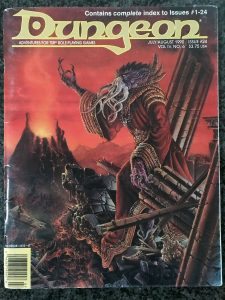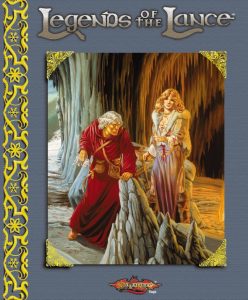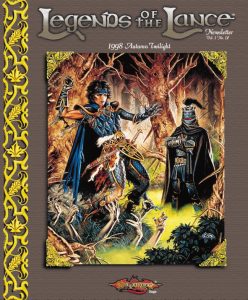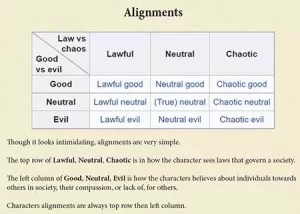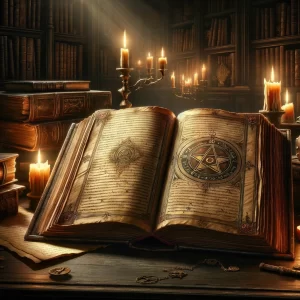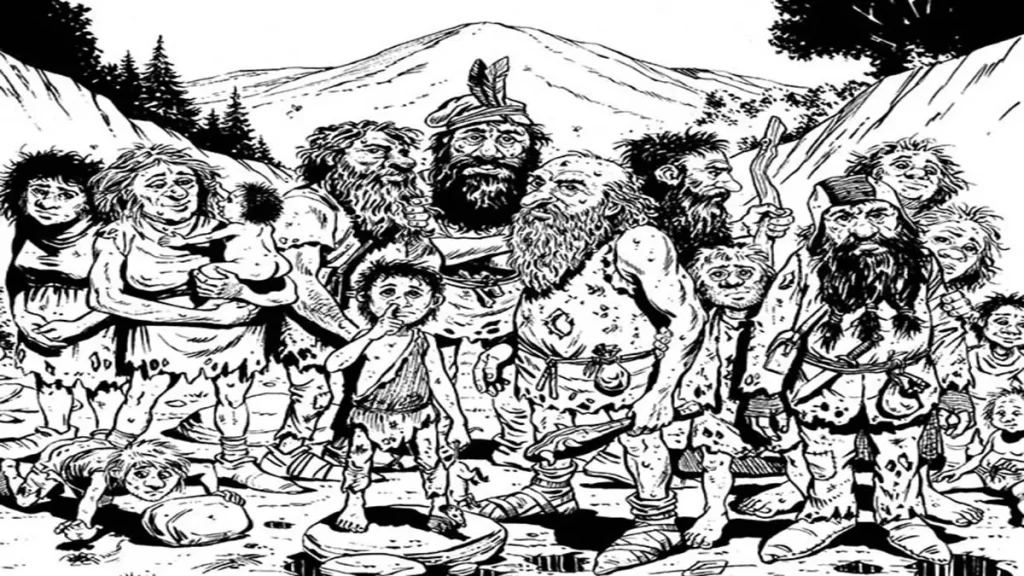
Gully dwarves boast a rich oral tradition about their origins—though "rich" might be generous. Ask five gully dwarves about their past, and you'll get seven delightfully contradictory stories, each more colorful, improbable, and outrageously exaggerated than the last. While outsiders find these tales hilariously absurd, gully dwarves recite them with a seriousness usually reserved for solemn religious ceremonies or deciding whether that moldy bread is still edible.
If one were to try and stitch together a semi-coherent origin story (a daring feat indeed), it would start long ago with humans who worshipped the deity Reorx. However, after these humans started selfishly abusing their talents (probably inventing taxes or cable TV), Reorx got fed up and shrank them down to a more manageable size, filling them with an irresistible urge to tinker, invent, and inevitably blow things up by accident. Thus, gnomes were born, small and curious beings perpetually surprised by the chaos they themselves create.
But fate had further mischief in store. The legendary Greystone of Gargath took some of these gnomes and twisted them even further into dwarves and kender. The dwarves inherited a passion for shiny, precious things and a stubborn streak as wide as a mountain range. Their gnomish curiosity was dulled, replaced with rigid, single-minded determination—typically directed toward hoarding vast quantities of gold, gems, or snacks.
However, love—or perhaps boredom—eventually bridged the gap between dwarves and gnomes, leading to some rather unconventional weddings in isolated communities. Surprisingly (or not), their offspring combined the worst traits of both races, lacking the dwarven dignity and gnomish ingenuity. When dwarf clans discovered these unfortunate hybrids, they reacted with horror and promptly banned any further intermarriage, branding the poor creatures as "Aghar," meaning "anguished." Humans, less diplomatically, dubbed them "gully dwarves," a nickname inspired by their habit of living in literal gutters and rubbish heaps.
The gully dwarves became Ansalon's perennial underdogs, frequently abused and driven from civilized society into swamps, ruins, and garbage dumps. Darker empires eagerly enslaved them, and even the nasty derro dwarves saw fit to exploit their diminutive cousins. However, as fate would ironically have it, the Cataclysm—devastating to the rest of Ansalon—proved a peculiar blessing to the gully dwarves. The collapse of civilization left behind countless abandoned cities, which the Aghar promptly moved into and declared their own personal paradises, blissfully free from persecution (at least for a while).
Today, many gully dwarves still call ruined cities like Xak Tsaroth home, though sadly, their independence was short-lived. Draconian armies and ambitious overlords moved in, quickly relegating the Aghar back to slave labor. Nevertheless, gully dwarves dream nostalgically of the good old days—when "freedom" meant rummaging through garbage without supervision—and will eagerly seek help from adventurers foolish enough to listen to their pleas.
Gully dwarf society (using the term loosely) is mostly structured around family clans of about twenty members, though larger, messier clans of up to sixty occasionally form, spreading chaos and confusion wherever they settle. Smaller, ragtag groups of two to eight dwarves roam the wilderness, gleefully transforming caves and abandoned mines into semi-livable squalor. Urban Aghar typically dwell in the sewers and garbage dumps of large cities, cheerfully performing menial tasks like trash collecting and street sweeping under careful, suspicious supervision.
Spiritually, Aghar recognize Reorx as their patron deity but believe he long ago washed his divine hands of them—probably muttering something about impossible odds. Instead, gully dwarves rely on their ancestors' spirits, confident these long-dead relatives are keeping an eye out, presumably shaking their spectral heads in disbelief at their descendants' antics.
Magic fascinates gully dwarves, but it's more akin to the way fireworks fascinate cats—brief awe followed by frantic fleeing. Powerful spells terrify them, and magical items are viewed suspiciously. To Aghar, objects imbued with magic by other races are inherently tainted. Instead, they venerate utterly mundane things, believing them to hold hidden ancestral power. Thus, old bones, rotten fruit, and oddly shaped sticks become holy relics after lengthy (and heated) debates among the clan members. Shamans are entrusted with safeguarding these precious objects, solemnly overseeing their dubious mystical properties.
Curiously enough, before the Cataclysm, human clerics occasionally held up gully dwarves as examples of unwavering faith. "If only we believed in our relics like the Aghar believe in theirs," one cleric proclaimed earnestly, causing bewildered worshippers to look nervously at their priest.
Key gully dwarf personality traits include a formidable survival instinct, profound lack of common sense, stubborn pride, and impressive endurance. Despite constant ridicule from other races, gully dwarves endure conditions that would break even the toughest adventurers, and they do it with an oddly cheerful defiance. Adversity has become their friend—or at least an annoying neighbor they tolerate grudgingly.
Indeed, gully dwarves excel at survival through methods that others might consider unsavory: lying, cheating, stealing, or enthusiastically throwing yesterday’s stew in an opponent’s face. They're resourceful, repurposing junk into practical items—old pots become helmets, bent spoons double as lock picks, and broken boards transform into sophisticated rat traps.
Mathematically, their skills are famously limited, recognizing only two numbers: "one" and "two," where "two" means "anything more than one." Thus, a gully dwarf could easily consider a handful of gems as "two," perfectly logical to them if baffling to outsiders.
Through it all, gully dwarves face life’s hardships with a stubborn cheerfulness, shrugging off calamities and mishaps alike. They've survived too many disasters to panic at another inconvenience. For a race perpetually underestimated, perhaps the gully dwarves' greatest achievement is simply their refusal to disappear quietly from Ansalon’s history.
